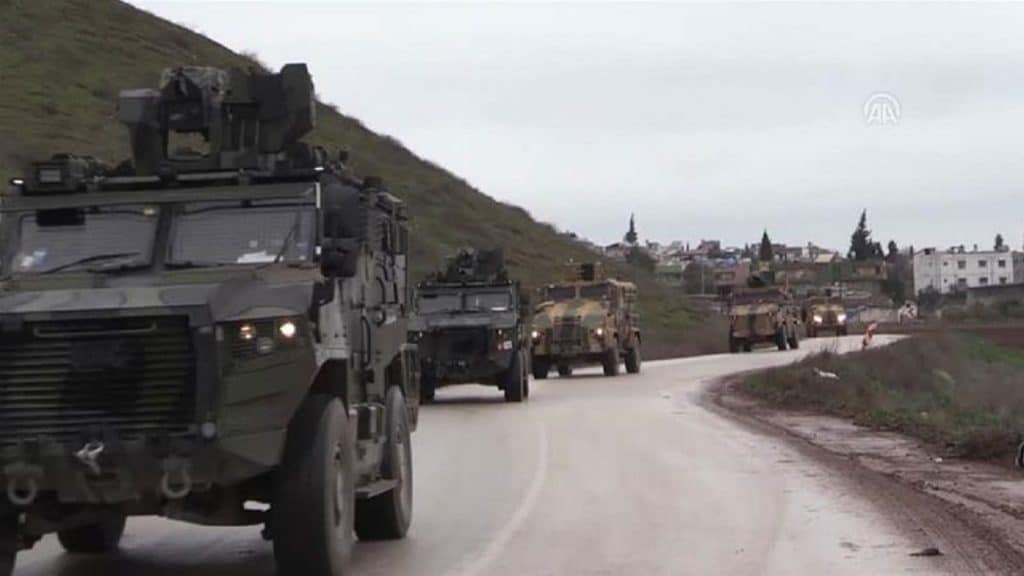By Denis Korkodinov
The military operations carried out by Turkey in the Syrian province of Idlib actually nullify the existing agreements between Recep Erdogan and Vladimir Putin within the framework of the Astana and Sochi formats.
In addition, the military campaign in northwestern Syria increases the risk of another humanitarian and migration crisis in the region, which poses a threat to the entire international community. However, Turkey is still afraid of Russia, and therefore Ankara will take the risk of aggravating relations with Moscow only if it will be absolutely confident in her victory.
It is worth noting that before the start of the active phase of the offensive in Idlib, there was a certain neutrality between the units of the Turkish army and the Syrian government forces. This neutrality was maintained on the basis of guarantees provided by Vladimir Putin and Recep Erdogan.
Nevertheless, the increasing attacks by pro-Turkish groups on the positions of the Syrian Arab Army have led to the fact that previously reached agreements on mutual non-aggression have lost their relevance. In support of this, on February 4, 2020, the Turkish president officially announced that in the event of a further offensive by Syrian government forces, Ankara reserves the right to use force to neutralize a potential threat to its interests.
Meanwhile, Recep Erdogan’s statement today should be viewed through the prism of strategic and political factors that prevent the Turks from delivering a crushing blow to the positions of Bashar al-Assad’s army. And even if clashes occur between the Turks and the Asadites, the losses of the parties will be purely symbolic.
Despite the fact that Turkey is considered a fairly strong player in the international arena, the failed military coup of 2016 made certain adjustments to Recep Erdogan’s policy. From now on, he shows excessive caution, involving the Turkish army in military adventures. In particular, the Turkish president will use the armed forces of his state only with absolute confidence in the success of the military campaign.
Otherwise, the Turkish military command may not forgive Recep Erdogan’s defeat at the front and direct his anger towards preparing another coup d’etat. For this reason, the Turkish leader is cautious in Idlib, because he is not sure of his victory, and he is not able to risk the army without guarantees of success. Vladimir Putin, realizing this, uses the situation to strengthen Russian influence in Syria, which Recep Erdogan clearly does not like.
For almost five centuries, Russia has been Turkey’s main strategic adversary. Nevertheless, Vladimir Putin managed to form a situational alliance with Ankara, smoothing out the “sharp corners” in relations between the two countries after the “plane crisis”, and also providing the Turks with the latest S-400 missile defense system. However, the period of “long Russian courtship” of Turkey led to the fact that Recep Erdogan felt entitled to dictate his conditions to Moscow, which turned out to be absolutely unacceptable to Vladimir Putin.
This attitude of the President of Russia was quickly brought to the attention of the Turkish side, in connection with which Recep Erdogan began to beware of pressure from Moscow. The fact is that Turkey is really afraid of completely ruining relations with Russia. The history of the Russian-Turkish wars is for Ankara a vivid proof that Moscow almost always won. Based on this, Recep Erdogan is not ready to create significant obstacles to Russian actions in Idlib and in Libya. Accordingly, the Turks intend to show the same caution in relation to the Syrian Arab Army and the forces of Khalifa Haftar, which are supported by the Kremlin.
In the Libyan conflict, the situation changed dramatically when Russia indicated its interest in it. This allowed the Libyan National Army to significantly strengthen its position and intensify its actions against the Government of National Accord. This state of affairs clearly annoyed Turkey, which continues to see Libya as an integral part of the Ottoman Empire.
In this regard, Recep Erdogan decided to send Turkish troops into the vicinity of Tripoli to protect the Al-Vefak government. And only due to the fact that the Kremlin expressed its clear support for the Libyan National Army, Ankara still keeps its armed formations from the beginning of wide-scale military operations. In this regard, it is logical to conclude that Turkish policy aimed at protecting the government of Fayz al-Sarraj depends entirely on how Recep Erdogan and Vladimir Putin agree in Syria.
(The views expressed in this article belong only to the author and do not necessarily reflect the views of World Geostrategic Insights).
Image Credit: Anadolu Agency via Reuters







